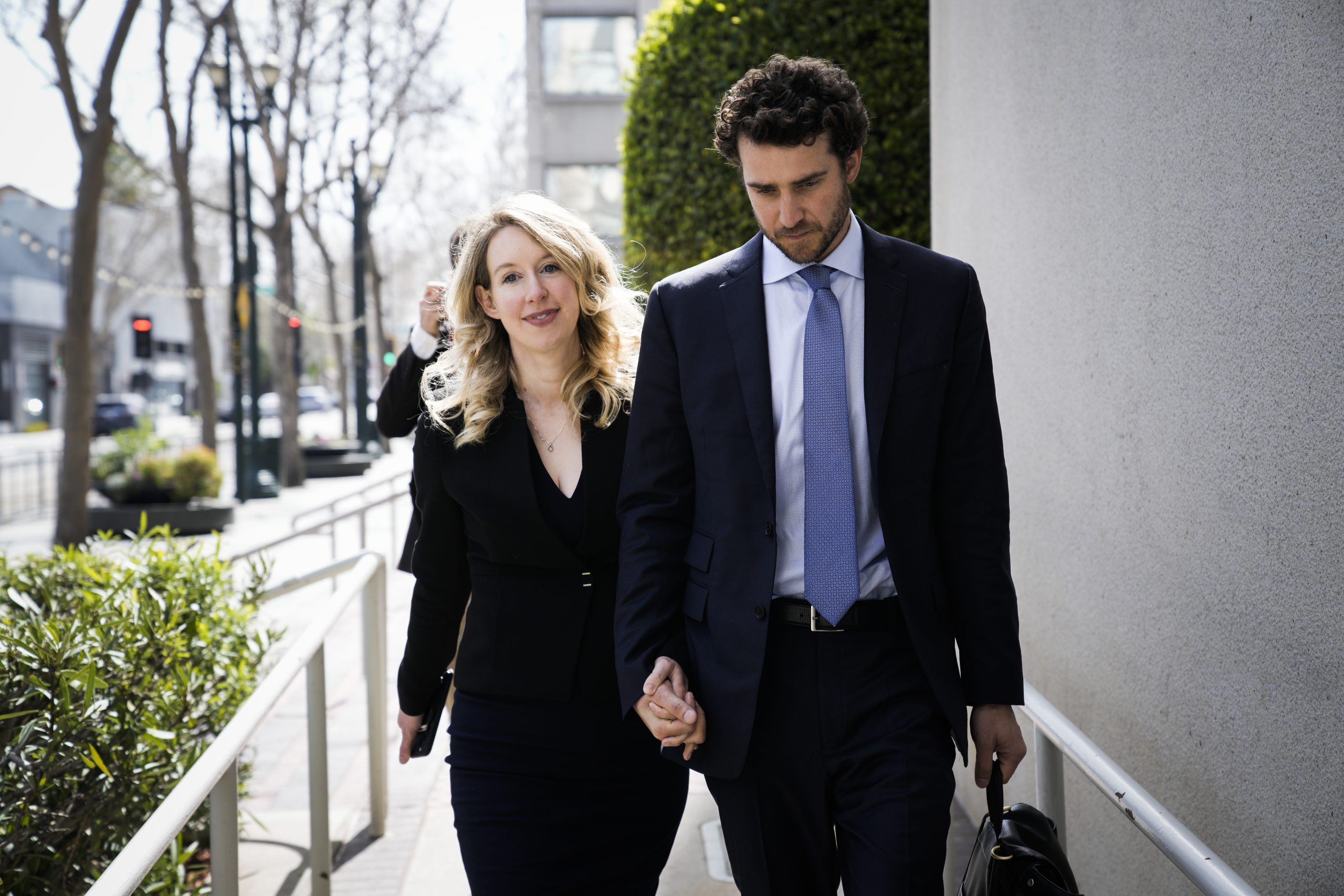Theranos founder Elizabeth Holmes must report to prison later this month as she appeals her conviction of three counts of defrauding investors, a judge ruled Monday, denying her request to remain free on bail as her legal saga continues.
Holmes skyrocketed to fame in the early 2010s, falsely claiming her company's technology could accurately perform hundreds of medical tests with just a small drop of blood. In 2014, she was a Silicon Valley superstar, and the company was valued at more than $9 billion. But as technological failings and fraud claims came to light, the company imploded.
In 2018, Holmes was indicted on criminal charges and, last year, was convicted and sentenced to 135 months (11 years and three months) in prison. She has been ordered to report to prison on April 27. The judge in her case, US District Judge Edward Davila, has proposed that Holmes serve her sentence in a relatively cushy, minimum-security women's prison camp in Bryan, Texas, outside of Houston, though the decision of where she will serve is ultimately up to the US Bureau of Prisons.
Amid the high-profile scandal and trial, the notorious ex-biotechnology executive met her current partner, Billy Evans, and became a mother of two, with her youngest born in recent months. Holmes was visibly pregnant during her sentencing.
She may make one more attempt to stay out of prison during her appeal. She could ask the 9th US Circuit Court of Appeals—which she has asked to review her case and overturn her conviction—to grant her bail as the appeal proceeds there.
Inconsequential
But in his ruling Monday, Davila said her appeal is unlikely to be successful and thus unlikely to sway the appeals court to grant bail. Davila's reasoning was essentially that none of the arguments that Holmes raised in her appeal would refute the basis of her conviction. For instance, Holmes took issue with some of the evidence the court heard regarding whether Theranos' blood-testing technology was "accurate and reliable." But whether the doomed company's technology was as accurate and reliable as promised was not necessarily at the heart of her conviction for defrauding investors, Davila reasoned.
There were "several misrepresentations that do not turn on whether the technology worked or not, such as those regarding the company’s financial status, reliance on third-party and commercially available devices, partnership with Walgreens, and validation by pharmaceutical companies," Davila wrote in his ruling. Even if the appeals court agrees with Holmes that the court erred on the matter of the technology's accuracy and reliability, it would not likely call into question the jury's verdict.
"[I]n light of the breadth of misrepresentations at issue, the Court cannot conclude that there is any one category of misrepresentations 'so integral to the merits' that any potential error at all would be likely to result in reversal or new trial of all of Ms. Holmes’s convictions," Davila concluded.
Holmes similarly argued the court erred in her trial by excluding testimony by former Theranos President Ramesh "Sunny" Balwani, limiting cross-examination of one of Theranos' former lab directors and admitting certain evidence of misrepresentation by Theranos to the Department of Defense. But, again, Davila found no reason that the errors, if true errors, would warrant a new trial or change the outcome of a jury's verdict. Holmes also argued that the court should not have denied her previous requests for a new trial, but Davila responded by saying that Holmes had failed to address all the points the court raised in its justification of those denials.
“Bold move”
The only bright spot for Holmes was that Davila concluded that she was not a danger to the community or a flight risk, though these determinations alone are not enough to justify allowing her to remain free. There was much media attention around allegations from government prosecutors that Holmes posed a flight risk because she and her partner had purchased one-way international airplane tickets for a flight scheduled to depart a few weeks after the jury rendered its verdict. And after the jury found Holmes guilty, she did not immediately cancel the ticket.
But Holmes and her lawyers argued the tickets were to attend a wedding and were purchased with hopes for a full acquittal. The subsequent failure to cancel them was simply an oversight in the aftermath of the verdict. Davila accepted this explanation, though he noted that it was rather foolish.
"Booking international travel plans for a criminal defendant in anticipation of a complete defense victory is a bold move," he wrote, "and the failure to promptly cancel those plans after a guilty verdict is a perilously careless oversight."
Davila noted that Holmes' passport is in the court's custody and is now expired. She has no family or assets abroad and is easily recognizable. Her presence is secured by a $500,000 bond on her parents' house, and she now has two very young children. In all, he deemed her not likely to flee, though it didn't help her win her freedom.
"Although the Court finds that Ms. Holmes is not a flight risk or a danger to the safety of the community, it is unable to find that she has raised a 'substantial question of law or fact' that if 'determined favorably to [her] on appeal, [would be] likely to result in reversal or an order for a new trial of all counts on which imprisonment has been imposed,'" Davila concluded in the denial.
Similarly, Balwani this week lost his bid to remain free after he appealed his conviction for defrauding Theranos investors and patients. He was found guilty of 12 counts of fraud last July and was sentenced to nearly 13 years in prison. He has been ordered to report to prison on April 20.


